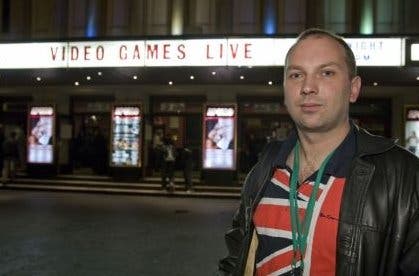Music To Play Games By
Gaming’s leading composers explain how videogame music is reaching new levels of critical acclaim outside of the industry.
Middle 8
Of course, there's a limit to how much silence you can use to flesh out a 20-hour epic, and the sheer challenge of creating so much music is a challenge. Beddow, who employs a writing team to support him on the Total War games, explains how he begins such a daunting task: "Musical ideas generally come to me in a couple of ways: by improvising at the keyboard and trying things out, or by hearing the ideas in my head then writing them down. I like to draft out the entire structure of the piece of music, even if thinly to establish the flow before delving in to the detailed orchestration.
"Once I am happy with the general structure I will then begin separating out the notes to the various sections of the orchestra. When working on a game score it can be useful to work on the "main theme" track first, especially if you want to be able to use variants of it or fragments of it in other tracks, but this isn't always necessary and really depends on the project - for instance a racing game may not make use of a main thematic track on anything other than the main menu or in an opening movie, some games such as beat 'em-ups sometimes don't even have main theme tracks."
For Jacques, the initial approach depends on the project and team. "Every project is different from the next," he says. "In general however, I begin working from concept artwork, game design documents, and early development builds of the game, as well as animatics for the cutscenes. It is important for a composer to have experience in games as a well as a good imagination and an ability to make the right creative choices."

Beddow agrees that visual references, no matter how basic, are essential: "I like to gather as much visual material as possible as this helps inspire the writing process. This may mean getting hold of concept art, still images or video sequences from various sections of the game. It's very useful for in-game music to have video captures of the levels in action so you can get a feel for how your music is working in that environment. The more information the composer has the better informed they will be and that should translate to the music.
"Once the tracks are complete, if I'm recording them with a live orchestra I will prepare MIDI files for the orchestrator, that is - I will tidy up rhythms and note lengths and re-order the score in a traditional orchestral layout with the articulations clearly marked so the orchestrator knows what instrument and playing style I want on every note. The orchestrator will then produce the sheet music from which the musicians will play."
Key Change
Until the advent of CD-ROM-based videogame consoles, few games could afford the memory space for recorded music, instead opting for MIDI-based soundtracks. Marty 'O Donnell was one of the first composers to use a live orchestra to record his score, for the Xbox launch title, Halo. "Every game I've ever worked on I've fully believed will come to be regarded as the best one in all of history," he tells me. "But as I sat behind closed doors in 1999 and saw the vision of the first Halo game I was...it was just so powerful. From the first I wanted that soundtrack to be epic.
"At that time only a tiny proportion of games employed live orchestras for their soundtracks; mostly it was MIDI orchestras to cut costs. I went to Bungie and pleaded. I said, if you can cover the costs I can get the Chicago Symphony Orchestra (I'd worked with them for a few advertisement projects in the past) and I will make something truly special. It paid off. That said, I didn't turn a profit on the first game..."
But while games may be adopting more of Hollywood's grand execution, they have some way to go before they can truly compete, according to Beddow. "Games often have a wonderfully rich array of music, sometimes more so than in other media because they have many levels that offer incredibly diverse music," he explains. "However, budgets are still generally very different between games and say film worlds, and as such I think we are still some way from being able to truly compete with Hollywood soundtracks on sonic terms simply because of the budgets they have available for music production."
Crescendo
For Jacques, however, the key is not about being able to complete with Hollywood on sonic terms, but rather in terms of quality of score. "It has been very encouraging in recent years to see video game composition gain a wider audience and greater success," he says. "It proves that there are some very talented composers working in the industry today, who are creating scores that rival those of any 'A' list movie composer. I have been fortunate enough to perform at various shows across the world, as well as having my music featured in concerts and exhibition galleries as well as on radio and TV. I think there is always more we can do but certainly the music of video games is starting to become highly acclaimed, and rightly so."
